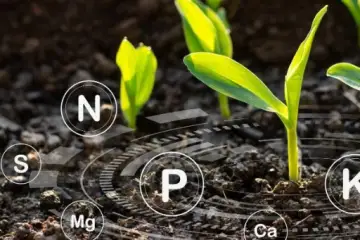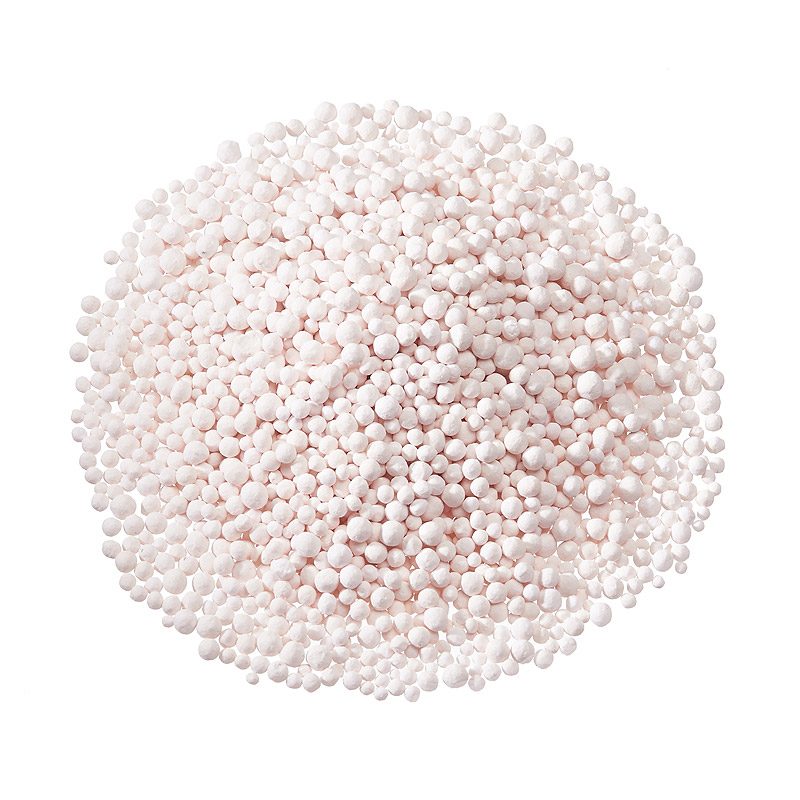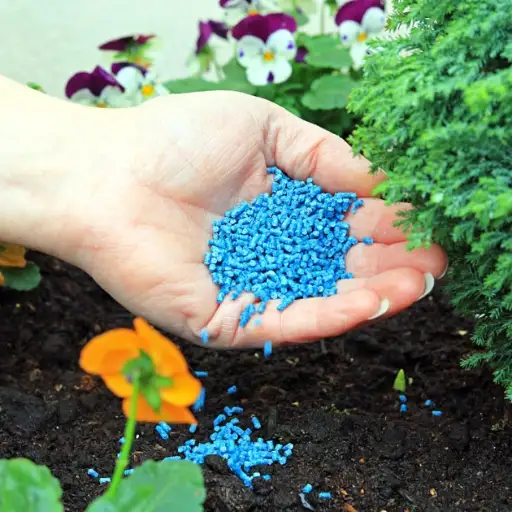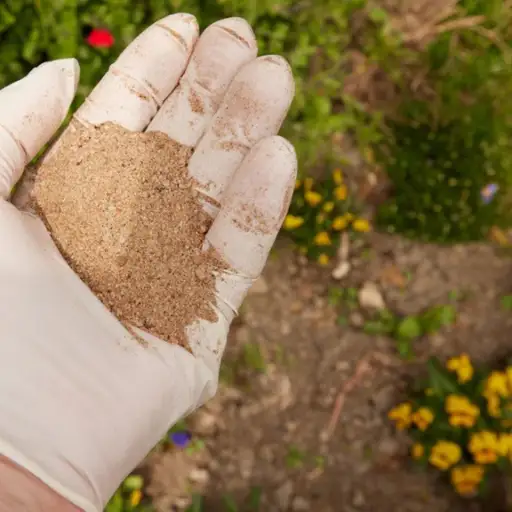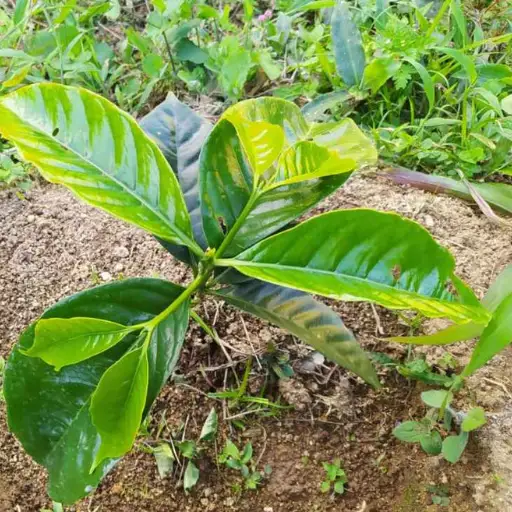Introduction: Understanding the Role of Manganese in Plant Nutrition
Manganese plays a crucial role in plant growth, development, health and vitality. It is an essential micronutrient necessary for a wide variety of plant physiological processes, including photosynthesis, respiration, and nitrogen assimilation. Manganese is an integral constituent of plant enzymes, functioning in certain critical metabolic reactions.
One of manganese’s key roles in plants is in the water-splitting event of photosynthesis in photosystem II – when the sunlight, water and CO2 of plants are turned into the oxygen and energy-rich compounds on which all aerobic life on Earth rely.
Along with its role in photosynthesis, the manganese can also lend a hand to reinforce plant immune systems against pathogens, by catalysing the creation of a chemical called lignin in walls of the cells, strengthening them and making the cell wall less likely to be invaded by pathogens.
Although manganese is one of the essential plant nutrients, it can occur in soils in forms that are difficult for plants to absorb. These may be natural consequences of soil characteristics that influence manganese availability – for example, high or low soil pH, high or low soil organic matter content, or the presence of other minerals. Manganese deficiency may result in symptoms such as interveinal chlorosis on the youngest leaves, smaller plants and reduced defence against disease.
This fertilizer becomes more important for plants than ever. To supply their nutritious supplies sufficiently from manganese, farmers and gardeners apply organic manganese fertilizer extensively. Organic fertilizers supply plants with manganese and many other nutrients, and make plants more healthy and high-yielding.
In general, it is impossible to overstate manganese’s importance for plant health. It affects energy production, photosynthesis, pollen germination and so much more. Yet the same is true of most plant nutrients. It’s only when we lack understanding and have no way for manganese to get into a plant that things start going wrong. This is why it’s crucial to know more about what nutrients are, how they work and what we can do to prevent deficiencies causing problems for all crops – including cacao plants.
The Importance of Organic Manganese Fertilizer
This organic manganese fertilizer plays a crucial role in filling plant nutrient demands, in a sustainable and truly eco-friendly way. As such fertilizers are highly enriched with nutrients in bioavailable form ready for direct plant intake, they are able to support healthy plant growth and development, as well as the activity of the soil micro-ecosystem.
Organic manganese fertilizer is a term applied to natural manganese‐containing organic products obtained from sources of organic manganese such as animal manures and composts as well as mineral deposits like manganese nodules and manganese oxide. Being organic fertilizers, they are used as slow‐release fertilizers, meaning that the leaching of manganese along with other nutrients is far less likely to occur, thus the risk of polluting and contaminating water is reduced, minimising the occurrence of eutrophication.
Manganese supplying fertilizer is a useful example to delineate the factors differentiating mineral versus synthetic fertilizers in terms of bio-availability and ecological integrity, namely: 1. concentration of manganese: organic fertilizer is lower in manganese content than synthetic fertilizer 2. complexity: not only is the quantity lower in organic fertilizer, but its composition is more complex, containing a combination of nutrients that simultaneously improves soil fertility and the activity of microorganisms and other micro-creatures 3. complexity of action: the presence of more nutrients of different types ensures that soils not only supply parameters to improve plant uptake of nutrients, but also make soils more balanced and full of life, promoting sustainable agriculture.
Secondly, organic manganese fertilizers need to be used to avoid manganese deficiencies in agricultural crops – especially those grown in poor quality soils on a large scale. Particularly important are manganese deficiencies in crops grown on sandy soils or on peat or on soils with a high pH value, which leads to lower yield and quality of the produce. Symptoms include interveinal chlorosis of young leaves, reduced plant growth and, in some plants, favourable conditions for a certain group of the plant pathogens.
Organic manganese fertilizer should enable farmers to integrate micronutrients into their soil management practices. This not only helps crops to meet their immediate needs for micronutrient nutrition but will also contribute to the longer-term maintenance of a balanced nutrient availability for plant growth. Therefore, organic fertilizers do not simply provide nutrition to crops but also help govern environmental and economic outcomes of agriculture as a whole.

Benefits of Using Organic Manganese Fertilizer
Using organic manganese fertilizer could help plants to be healthy and make the farm more productive. There are many advantages of using organic manganese fertilizer for agriculture. These will be discussed in this essay. The use of organic manganese fertilizer is beneficial in many ways for the immediate growth of the plants and harvesting.
Organic manganese fertilizer can increase the plants’ ability to absorb water, nutrients and sunlight, which leads to rapid growth and higher yields. Also, when using organic manganese fertilizer, it reduces insect and disease activity and decreases the risks of crops being damaged. In the long term, using organic manganese fertilizer is considered as a sustainable farming method for years.
Consequently, using organic manganese fertilizer keeps the farm and the surrounding areas cleaner compared to growing organic crops without it. In conclusion, using organic manganese fertilizer is essential for farmers to keep their plants healthy and maximise their production levels in the short and long term.
One of the main benefits of an organic manganese fertilizer is that it enhances plant health. Manganese is a known cofactor in a whole array of growth activating enzymes. Among other activities, manganese is essential for photosynthesis and nitrogen metabolism. It helps plants produce more chlorophyll, and the net result is healthier, stronger plants with faster growth rates.
Furthermore in the context of crop nutrition, manganese plays an important role in plant disease resistance. Manganese increases the plant’s immune system which enhances the resistance to diseases and pests and, therefore, improves fragility of plants. For example, proper manganese contributes to the resistance of powdery mildew and to combat root pathogens which are quite common disorders in many crops. This boost to crop resistance is indispensable to agriculture since it reduces the risk of using chemical pesticides leading to sustainable agriculture and organic practices.
Furthermore, crops fertilised with organic manganese show greater tolerance to biotic and abiotic stresses. Manganese is required for the synthesis of lignin, a polymer that increases the rigidity of plant cell walls. Higher lignin amounts enhance plants’ resistance to environmental stresses such as drought and extreme temperatures. The trait is essential to sustain crop yield in excessively challenging environments.
In addition to a general boost to plants, the organic manganese fertilizers also improve the general health of the soil. They are another important part of the biodiversity of soil microbes that help to cycle nutrients and enrich the soil. Healthy soil microbiomes enhance nutrient availability, improve soil structure and water retention – all helpful for the plants.
A number of case studies provide agriculture examples of how organic manganese fertilizer can be successfully implemented on the field. For instance, crops sensitive to manganese stress such as soybeans can increase their yield and quality with organic manganese supplements. Likewise, crops that require high manganese for normal production such as wheat and oat can show better resistance to fungal diseases and improved grain quality by using adequate manganese nutrition.
In summary, the use of organic manganese fertilizer promotes healthy plant growth, boosts the plant tolerance to biotic and abiotic stresses, and enhances healthier ecosystem function in the soil. These features are reasons why the practice of organic micronutrient management can be integrated to enhance productivity in modern agriculture. This ultimately advocates for a more sustainable farming system and greater food security in the future.
Application Tips for Organic Manganese Fertilizer
Organic Manganese fertilizer should be used judiciously and in the right way to maximize its amazing benefits for agriculture. The knowledge of the right method of fertilizer application helps the plant to receive valuable nutrients like Manganese and attains maximum food and soil health.
Guidelines on How to Correctly Apply Organic Manganese Fertilizer
- Soil testing: Before applying any fertilizer, you should always test your soil for nutrient levels, including those of manganese. If you test your soil, you will know if the fertilizer should be applied at all, at a low rate, or at a high rate. Don’t over-apply manure to your pastures or suppress your valuable clover plants with over-fertilization.
- Timing matters: Applying organic manganese fertilizer early in the season or as a foliar application during the most critical growth stages when the added nutrients will be readily taken up by plants.
Application Methods:
- Broadcast: If broad coverage is important, especially before planting, fertilizer can be uniformly broadcast over the soil surface and then worked into the soil.
- Banded Application: Ammonium nitrogen fertilizer applied in bands along the seed rows to increase uptake and development of seedlings.
- Foliar Sprays: An easy way to correct the deficiencies is by administering manganese. By applying it as a foliar spray, plants will be able to absorb the nutrient through their leaves directly.
Best Practices for Integrating Manganese into a Comprehensive Soil Health Management Strategy
- Mixing with Organic Matter: Mixing organic manganese fertilizer with organic matter such as compost can improve a soil’s manganese-binding capacity as well as avoid the fast release of manganese.
- Crop rotation: Plants with high manganese utilization efficiencies can keep soil manganese levels maintained or increased by being included in the crop rotation.
- Keeping alkaline: With the importance of pH to manganese availability, maintaining a slightly acidic to neutral level (6.0 to 7.0) can increase manganese solubility and availability.
Tips on Monitoring Soil Manganese Levels and Adjusting Fertilization Practices
- Routine Monitoring: Maintain Mn soil and plant tissue levels through routine monitoring throughout the growing season. This will enable the grower to adjust fertilizer management if it turns out that Mn levels diminish below the critical level.
- Chelated formulations: If soil conditions restrict Mn availability, chelated Mn formulation fertilizers should be used, as they are more readily taken up by plants and are less liable to become fixed in the soil.
With these application tips and an organic source of manganese fertilizer as part of an overall soil health management approach, growers of crops and gardens can optimize both soil fertility and crop yield while improving environmental sustainability.

Challenges and Considerations in Using Organic Manganese Fertilizer
Even though its benefits are numerous and its drawbacks are fewer, the use of organic manganese fertilizer requires some pondering and caution to be reaped in the best way, and problems to be averted.
Determining the Correct Dosage
Getting the dosage correct for particular crops and soils can be challenging, since manganese requirements vary considerably among crops and even among different parts of an individual plant’s life cycle. Toxicity due to over-application can cause a spreading darkening of leaf tissue that may be accompanied by stunted growth, while under-application can cause the most recognizable symptoms of manganese deficiency: chlorosis, or the yellowing of leaves, and stunted growth. In any case, accurate soil testing and analysis of plant tissue are vital to estimating the correct amounts of manganese to apply.
Understanding Soil Characteristics
The REDD is still effective, but it depends on the soil’s fertility conditions and pH levels. Manganese becomes less available in high-pH soils, called alkaline soils, and greater in acidic conditions. If there is a large amount of organic matter and other minerals in the soil, they exclude manganese from being adsorbed by the roots. Understanding soil properties and features are key to devising efficient and environmental fertilizer methods.
Addressing Misconceptions
These myths go on to say that organic fertilizers will always be less efficient or slower to show impacts than synthetic ones. The fact is that farmers and gardeners need to be well educated about the benefits of organic fertilizer to plants not only in the short term but for their long-term soil health and sustainability. There is some outreach and education to dispel these myths.
Regulatory and Availability Issues
The illogical autonomous regulation This is because, in some regions, good-quality organic manganese fertilizer products are sometimes just not available, or use is restricted by regulatory means. Another variable is that the nutrient composition in many organic fertilizers can vary, making it difficult for them to meet strict regulatory standards for product nutrient content and environmental safety. Moreover, developing a standardized product that can be produced in commercial quantities and approved by regulatory bodies is a time-consuming and expensive process.
Best Practices for Overcoming Challenges
- Education and Training: Continuing education and training for farmers on the advantages and best practices for the usage of organic fertilizers helps overcome resistance and encourages best practice.
- Research and Development: Investment in research for improved manganese formulations, such as organic manganese, will improve its acceptance and effectiveness.
- Coordination with Agricultural Extensions: Cooperating with agricultural extension services to test soils, recommend fertilizers, and advise on their use can help farmers use and invest fertilizers more optimally.
When these obstacles and issues are dealt with, it could improve the utilization of organic manganese fertilizer and promote its applications in sustainable agriculture.
Conclusion
Organic manganese fertilizer should be dosed whenever farmers or gardeners wish to promote plant health and embrace environmental stewardship. As we have seen here, the use of organic manganese in agriculture offers many benefits to plant health, crop yields, soil quality and the environment.
Manganese is one of several micronutrients critical to both the physiological health of plants and the sustainability of humans and ecosystems through agricultural production – and with this in mind we have sought methods to deliver them more effectively and sustainably. Our organic manganese fertilizers help us do just that.
Moving away from synthetic fertilizers and towards organic fertilizers and better nutrient management systems will be a key part of achieving that objective. Educating farmers on the problems and consequences of poor application of organic manganese, as well as on the best management practices for their unique soil conditions, is essential. This information will improve informed decision making for better in-field and long-term environmental outcomes for both organic and conventional agriculture. Both types of farming can produce as well as or better than today’s modern chemical farming systems that use harmful inputs. With the right soil management practices, the fundamental challenges of using iron and other organic materials can be effectively addressed.
To summarise, the organic manganese fertilizer should be considered as a part of comprehensive improvement of agricultural sustainability, provided that the influences of manganese availability and efficacy have been adequately monitored and managed. In this way, we can help crops flourish, and also help them to do so in a way that is healthy for our planet.
Here are some scholarly references on the topic of organic manganese fertilizer:
- Chen et al. (2023) – This study conducted a meta-analysis on the impact of organic fertilizers on soil bacterial diversity, showing that organic and chemical-organic fertilization can maintain bacterial diversity and enhance soil fertility. This study is particularly valuable for understanding the broader impacts of organic fertilization on soil microbial communities.
- Frontiers (2019) – Research on soil microbial community structures in rainfed farmland indicates that organic fertilizers have a significant effect on carbon and nitrogen mineralization, which are crucial for soil health and crop productivity. This finding underscores the importance of organic fertilizers in enhancing nutrient cycling in agricultural ecosystems.
- Nature (Recent Study) – A study reported by Nature explores the effectiveness of minerals and chelated-based manganese fertilization on wheat productivity and manganese uptake. It highlights how specific forms of manganese fertilization can significantly improve plant growth and nutrient uptake in sandy loam soils, a crucial insight for managing micronutrient availability in challenging soil types.
- Mosaic Crop Nutrition – This resource details the role of manganese in crop production, noting its essential functions in photosynthesis and its impact on overcoming manganese deficiency in plants. It provides a comprehensive overview of how manganese interacts with plant physiology and the consequences of its deficiency.


